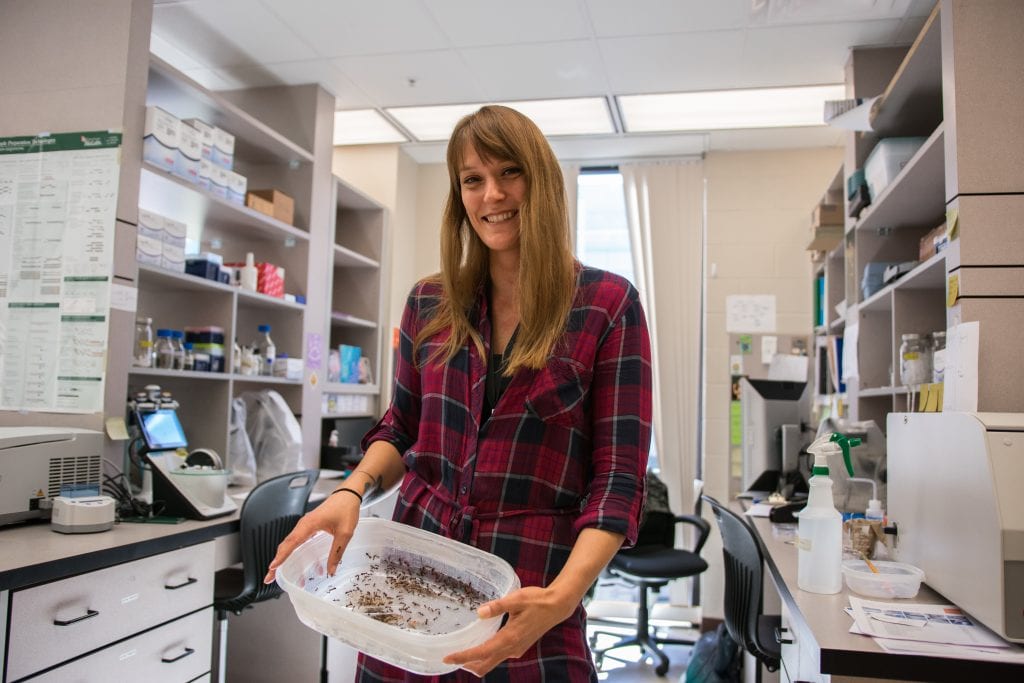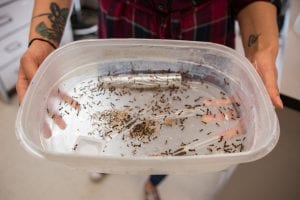Five Year Grant Will Deepen Research Into ‘Zombie Ants’

Charissa de Bekker in her lab.
A new $970,000 grant from the National Science Foundation will allow biologists to deepen their research into the biological makeup of parasitic fungi that hijack the behaviors of their hosts.
The five-year CAREER grant also paves the way for Assistant Professor Charissa de Bekker, Ph.D., to develop an upper level insect behavior course and broaden the public reach of her research through a virtual reality experience at the Orlando Science Center.
“This grant allows us to dive deeper into the molecular research on zombie-making parasites, which is great because not a lot is known and there is a ton of work to be done,” said de Bekker.
Parasitic fungi, particularly the ones that create so-called “zombie ants,” has been de Bekker’s research focus since 2011. She has gained insights in the fundamental functioning of the microbial fungus, and tracked the manipulated behaviors of ants infected by the fungus. But exactly what’s happening at the molecular level still needs explanation, and that’s what de Bekker’s lab plans to solve over this grant period.
Little is known in the scientific community about the complexities of fungal mind control.
“The fungi that we study can change ant behavior incredibly precisely,” said de Bekker. “So precisely, that the ants’ behavior perfectly serves the spread of the fungus. With the zombie-ant model, we are trying to get a better grip on the understanding of such manipulations.”
De Bekker believes her lab’s work will also give broader insights into parasite-host relationships and how communication and foraging behavior in insects is regulated and disrupted.
“We don’t understand the genetics of behavior in great detail yet. Our work will try to explain which genes and compounds change when behavior changes,” she said.
The grant, a part of NSF’s Early Career Development Program, is given to recipients considered role models in the academic community with the potential to further advancements in their field of study.

Ants under study by Charissa de Bekker and her team.
In addition to her research, the grant allows de Bekker to craft a higher level class for students interested in pursuing studies in animal behavior. Currently, the UCF biology department offers a class on animal behavior that is primarily lecture based. The course on insect behavior de Bekker is creating will allow students to have more intimate, hands-on experience with what they’re studying.
A topic like “zombie ants” carries wide appeal outside the academic world and de Bekker hopes to capitalize on that through collaboration with the Orlando Science Center. Early plans include a virtual reality simulation that shrinks the participant to the size of a parasitic microbe.
“We will be looking for undergraduate students interested in digital arts, computer science and gaming and biology for this project. As a biologist, I know the research side of it, but I am not well versed in the creative and programming aspects. So, I am looking forward to this collaboration,” said de Bekker.
